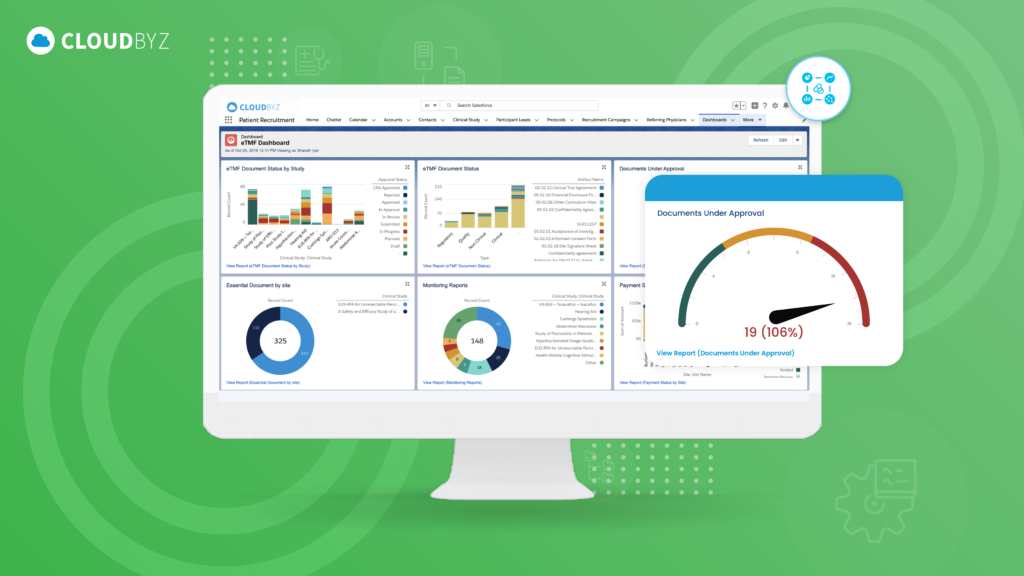
As the life sciences industry continues to evolve, so too does the complexity of clinical trials. With the increasing demands for efficiency, data accuracy, and regulatory compliance, the need for a unified eClinical platform has never been more critical. The fragmented nature of traditional clinical trial management systems (CTMS), electronic data capture (EDC), electronic trial master file (eTMF), and other clinical operations tools can lead to inefficiencies, data silos, and a lack of real-time visibility into trial progress. In this article, we’ll explore the industry perspective on the benefits of a unified eClinical platform and how it is revolutionizing clinical operations.
The Shift Towards Unified eClinical Platforms
The life sciences industry has traditionally relied on a mix of disparate systems to manage different aspects of clinical trials. While these systems have served their purpose, they often operate in silos, leading to fragmented data, redundant processes, and challenges in ensuring compliance and data integrity. As the complexity of clinical trials increases, with more stakeholders, larger datasets, and stricter regulatory requirements, the limitations of these disconnected systems become more apparent.
A unified eClinical platform addresses these challenges by integrating all critical components of clinical trial management into a single, cohesive system. This integration enables seamless data flow, enhances collaboration among stakeholders, and provides real-time insights into trial progress. The shift towards unified platforms represents a significant leap forward in how clinical trials are managed, offering a more efficient, transparent, and compliant approach to clinical operations.
Key Benefits of a Unified eClinical Platform
- Improved Data Integrity and Quality
One of the most significant advantages of a unified eClinical platform is the enhancement of data integrity and quality. In traditional setups, data is often duplicated across multiple systems, increasing the risk of errors and inconsistencies. A unified platform ensures that data is entered once and is immediately available across all modules, reducing the likelihood of discrepancies and ensuring a single source of truth. This is particularly important for regulatory submissions, where data accuracy is paramount. - Enhanced Collaboration and Communication
Clinical trials involve multiple stakeholders, including sponsors, CROs, investigators, and regulatory bodies. In a fragmented system, communication gaps can lead to delays, misinterpretations, and inefficiencies. A unified eClinical platform fosters better collaboration by providing a centralized environment where all stakeholders can access the same information in real time. This transparency not only speeds up decision-making but also ensures that all parties are working with the most up-to-date data, reducing the risk of errors and miscommunication. - Increased Operational Efficiency
The integration of CTMS, EDC, eTMF, and other clinical tools into a single platform streamlines clinical trial workflows. Automating routine tasks, such as data entry, monitoring, and reporting, frees up valuable time for clinical operations teams to focus on more strategic activities. Additionally, the ability to manage all aspects of a trial within one system reduces the need for manual data transfers between systems, minimizing the potential for errors and accelerating trial timelines. - Real-Time Data and Analytics
In today’s fast-paced clinical trial environment, real-time access to data is crucial for making informed decisions. A unified eClinical platform provides advanced analytics and reporting capabilities that allow stakeholders to monitor trial progress in real time. This real-time visibility enables proactive management of risks, faster identification of issues, and more agile decision-making. The ability to access up-to-date metrics and key performance indicators (KPIs) also supports better resource allocation and trial optimization. - Regulatory Compliance and Audit Readiness
Regulatory compliance is a critical concern in clinical trials, with stringent requirements for data management, patient safety, and reporting. A unified eClinical platform simplifies compliance by providing a comprehensive audit trail and ensuring that all data is stored in a secure, compliant manner. The platform’s centralized nature also makes it easier to prepare for regulatory inspections, as all relevant documentation and data are readily accessible. This reduces the time and effort required to demonstrate compliance, allowing clinical operations teams to focus on trial execution. - Scalability and Flexibility
As clinical trials become more complex and global in scope, the need for scalable and flexible systems becomes increasingly important. A unified eClinical platform is designed to scale with the needs of a trial, whether it involves a small, single-site study or a large, multi-site, global trial. The platform’s modular architecture allows organizations to add or modify functionalities as needed, ensuring that the system can adapt to evolving trial requirements without the need for costly and time-consuming system overhauls.
Real-World Impact: Case Studies in Unified eClinical Implementation
To illustrate the real-world impact of unified eClinical platforms, consider the following case studies:
- Case Study 1: Accelerating Study Start-Up
A mid-sized biotech company was struggling with lengthy study start-up times due to the need to coordinate multiple systems and stakeholders. By implementing a unified eClinical platform, the company was able to reduce start-up times by 30%, streamline communication between stakeholders, and improve overall trial efficiency. - Case Study 2: Enhancing Data Quality in a Global Trial
A global pharmaceutical company conducting a large, multi-site trial faced challenges with data consistency and integrity due to the use of disparate EDC and eTMF systems. The adoption of a unified eClinical platform allowed the company to centralize data management, resulting in a significant improvement in data quality and a 20% reduction in data queries. - Case Study 3: Improving Compliance and Audit Readiness
A contract research organization (CRO) needed to enhance its compliance processes to meet the rigorous demands of a regulatory inspection. By transitioning to a unified eClinical platform, the CRO was able to streamline its documentation processes, ensure real-time visibility into trial data, and achieve full audit readiness within a fraction of the time previously required.
Conclusion: The Future of Clinical Operations
The adoption of unified eClinical platforms is poised to transform the landscape of clinical operations. By breaking down the silos that have traditionally hampered trial efficiency and data integrity, these platforms offer a more cohesive, transparent, and agile approach to managing clinical trials. As the life sciences industry continues to innovate and evolve, the unified eClinical platform will play a pivotal role in enabling organizations to conduct more efficient, compliant, and successful trials.
For clinical operations teams, the shift towards a unified platform represents not just an upgrade in technology, but a fundamental change in how trials are conducted. By embracing this change, organizations can position themselves at the forefront of clinical research, driving better outcomes for patients and faster time to market for new therapies.
As the industry moves towards greater digitalization and data integration, the unified eClinical platform stands as a beacon of what’s possible when technology is harnessed to its full potential—enabling smarter, faster, and more efficient clinical trials.


